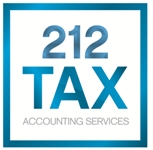Business owners and self-employed professionals often pay more in taxes than necessary due to missed deductions and inefficient planning. Whether you run a company, freelance, or own rental properties, strategic tax planning can help reduce your tax liability and grow your business.
At 212 Tax & Accounting Services, Anil Melwani and his team have been helping New York City and South Florida residents save millions through proactive tax strategies. Working with a tax specialist ensures that you’re making smart financial decisions year-round, not just during tax season.
Here are four tax-saving strategies every business owner should consider, plus one mistake to avoid.
For more ways to reduce your tax burden and make smarter financial decisions, check out our YouTube channel .
Maximize Retirement Contributions with a SEP IRA or Solo 401(k)
For business owners and freelancers who don’t have access to traditional employer-sponsored 401(k) plans, tax-saving retirement options like SEP IRAs and Solo 401(k)s provide an opportunity to reduce taxable income while building long-term financial security.
A Solo 401(k) often allows for higher contributions than a SEP IRA, but choosing the right plan depends on factors like income, the number of employees, and cash flow. Many business owners switch between these plans year to year, depending on which option offers the best tax benefits.
Unlike traditional retirement plans, contributions can still be made after the end of the tax year by filing a tax extension. This means that income earned in 2025 could be applied toward a 2024 deduction, giving flexibility in tax planning.
For business owners, tax laws can add another layer of complexity, especially when employees are involved. Certain plans require employer contributions to be distributed equally, and failing to follow the correct process could result in penalties.
Hire Your Kids the Right Way to Reduce Taxes and Build Their Future
Hiring your children in your business can provide immediate tax benefits while setting them up for long-term financial success. Wages paid to your child are a deductible business expense, which helps lower taxable income while keeping money within the family.
Both federal and state labor laws can be quite complex, so it’s essential to ensure that your child’s work complies with both all of the differentregulations. They must actually work for your business, and their wages must be reasonable for the tasks performed. If payroll isn’t handled correctly, the IRS or state tax authorities could disallow the deduction, leading to additional taxes, interest, and penalties.
Beyond immediate tax savings, paying your child a reasonable wage allows them to contribute to a Roth IRA, creating long-term financial security. Since Roth IRA contributions grow tax-free, this strategy benefits both the business owner and their child. 212 Tax ensures payroll compliance so you can take advantage of these savings while remaining fully compliant.
Use the Augusta Rule for Tax-Free Rental Income
If you own real estate, the Augusta Rule allows a unique opportunity to reduce taxes. If your business rents your home or another property for 14 days or less per year, you can deduct the rental expense while keeping the rental income tax-free on your personal tax return.
To qualify, rental agreements must be properly structured, and fair market rental rates must be documented. This strategy offers a way to lower taxable business income while keeping personal earnings tax-free. However, tax audits are frequent, and failing to document rental agreements correctly could result in IRS and state tax penalties.
Review Your Business Structure to Optimize Tax Savings
The way your business is structured impacts how much you owe in state and federal taxes. Many business owners start as sole proprietors or LLCs but later realize that electing S-Corp taxation could significantly reduce self-employment taxes.
For business owners operating in New York City, the Unincorporated Business Tax (UBT) can add an additional tax burden that doesn’t apply to all business structures. Choosing the right entity type, whether it’s an LLC, S-Corp, or C-Corp, can sometimes help reduce unnecessary taxes and provide legal protections.
Many businesses can also benefit from entity restructuring to avoid excessive taxes. Reviewing your corporate structure annually ensures you’re taking advantage of the best tax-saving opportunities.
Avoid This Mistake: Moving Your Business to Another State Won’t Always Save You Taxes
A common misconception is that moving a business to a low-tax state will automatically reduce tax liability. However, most small businesses operate as pass-through entities, meaning income is taxed on the business owner’s personal tax return, not at the business level.
In most circumstances, if you don’t physically move yourself, changing your business’s legal location won’t lower your tax bill. In some cases, it can actually create more tax complications, compliance issues and unexpected tax liabilities, or state audits.
Plan Ahead and Work with a Tax Expert
Tax planning isn’t just about lowering this year’s tax bill, it’s about making smart financial decisions that protect your business and personal wealth long term. Whether it’s maximizing deductions, hiring strategically, optimizing business structure, or taking advantage of real estate-related tax benefits, the right approach can save thousands of dollars each year.
At 212 Tax & Accounting Services, our team has been helping New York City and South Florida residents develop tax strategies that minimize liabilities and create long-term financial security. Business owners, freelancers, and contractors trust 212 Tax for proactive tax planning and expert guidance year-round.
Ready to reduce your tax bill and optimize your business finances? We offer two types of consultations designed to help you stay compliant and maximize your savings. Head to 212tax.com to learn more and schedule your consultation today.


